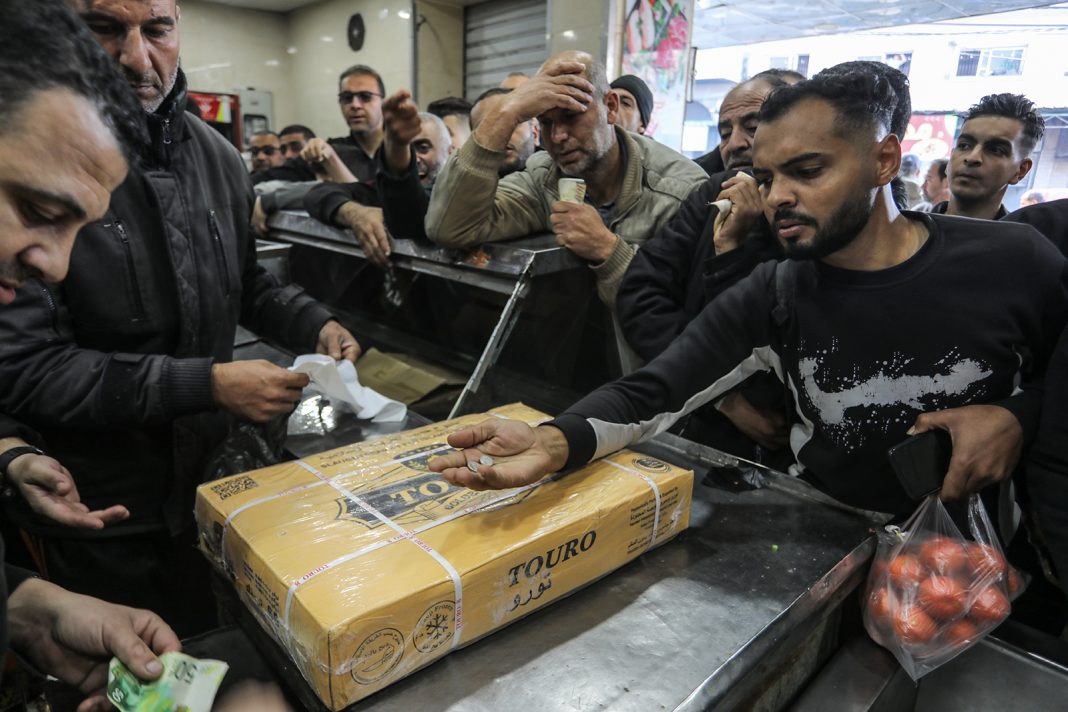A statement explained that the two governorates “need 1,300 food trucks daily to overcome the hunger crisis, with 600 trucks for the north and 700 for Gaza city”.
It pointed out that Israel “is speeding up the pace of a real famine and killing 14 martyrs who tried to get food (without providing details about the deaths)”.
The Media Office warned of the army’s “deliberate and intentional efforts to cause a real famine in Gaza city and northern the enclave”.
It also highlighted the army’s continued prevention of “aid, supplies, food, and provisions from entering the governorates, as well as shooting at trucks attempting to reach them, targeting drinking water pipelines and wells, and hindering all aspects of life”.
The statement held the “international community, the United States, and the occupation” fully responsible for the catastrophic and deadly consequences of famine and thirst, demanding that they “immediately and urgently stop the war”.
Since Oct. 7, 2023, Israel has continued to close the crossings between Gaza and the outside world. The Rafah crossing is partially opened for limited aid entry, the exit of dozens of patients and injured individuals and several foreign passport holders.
On Nov. 24, Israel allowed small quantities of humanitarian aid to enter the Gaza Strip through the Rafah crossing, within a one-week pause reached between factions in Gaza and Israel, mediated by Qatar, Egypt, and the United States. The pause included a hostage swap deal.
Truck entry to southern areas of Gaza has been limited since Oct. 7.
Since then, the Israeli army has waged a destructive war on Gaza, resulting in, as of Saturday, 23,968 fatalities and 60,582 injuries, mostly children and women, along with massive destruction to infrastructure and an unprecedented humanitarian catastrophe, according to Gaza authorities and the United Nations.
